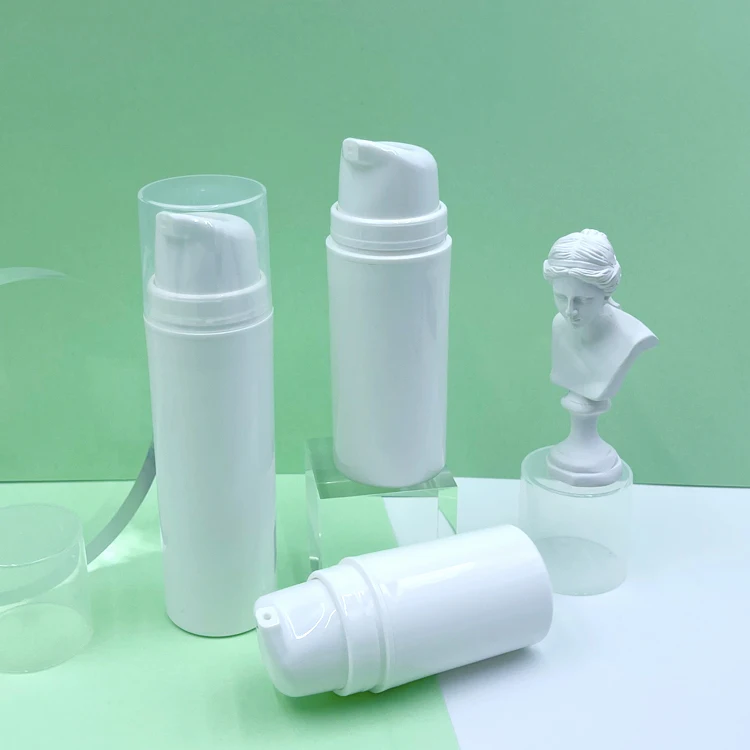From there began the rise of plastic pump technology.
Advancement in plastic pump technology is what has led different industries to adopt the use of plastic pumps now instead of heavy metals. This new pumps technology also out-performs the gensynthetic material alternatives in terms of performance, durability and life cycle. This new direction to plastic solutions signals a revolutionary change in the long-term ecological balance moving towards mankind manufactured structures that are lighter, less expensive and not an environmental hazard withoutdemolishing strength or accuracy. So let's read more about this interesting evolution reflecting the pump technology of tomorrow.
Plastic Pumps Taking Over
The quest for efficiency and sustainability started a few decades ago around the same time as changeover to another "all-plastic" era in the pump industry. In the days before 3D printing, engineers created plastics that are nearly impervious to chemicals and extreme temperatures with wear-resistance on par with standard metal materials. Creating entire pump heads from these cutting-edge plastics has the potential to disrupt traditional thoughts of what a dependable and robust pumping system looks like. Not only is this a move towards different materials, but equally represents a shift of paradigm in terms of what we think pump technology can actually achieve. Enter the era of all-plastic, which opens new frontiers in engineering design and resilience for hitherto unimaginable applications.
Gain For Various Industries
All-plastic pump heads have disrupted a number of industries like pharmaceuticals, food processing and chemical manufacturing. In the pharmaceutical sector, plastic is chemically inert that helps in preventing contamination making sure medicinal products are safe and unaffected. Food processing applications utilize plastic pump heads that are corrosion resistant and convenient to maintain. These pumps offer chemical manufacturers increased corrosion resistance to aggressive chemicals which leads extended life of equipment and shorten down time. This new civilization is about more than just survival and managing scarcity.
Greater Benefits of Plastic Pump Heads
In addition to their all-plastic construction, all plastic pump heads have other advantages. Their lower weight (40% less) makes them easier to handle and install, lowering the costs in operations. Low thermalconductivity compared to metals-plastics remain a perfect choice for energy-efficient applications and it remains stable in environments where temperature changes are important. Also, the recyclability of most plastics means natural resources are saved and carbon footprints reduced by this sustainable practice. These advantages are testament to a change in the trend where we may soon see better performing pumps that also contribute towards nurturing nature for future generations.
Challenges to Overcome
Moving from metal to all-plastic pump heads creates problems of its own. It is important that the plastic components reliably retain their mechanical strength and durability during continuous high-pressure operation. There are new types of blends being developed by material scientists and engineers that have mechanical testing to rival those properties with which metals are known. Further, ensuring that a liquid stream does not contain leakable microplastics requires detailed testing and strict quality checks. There is no military industrial complex to prompt a petri-dish promotional look and as such convincing pump head manufacturers that they can profit financially and environmentally by adopting plastic... ++industry inertia++ mitigates against change. Creating an all-plastic future requires working together, learning, and constantly striving to improve.
Effects Further Than Just Pump Manufacture
The impacts of the all-plastic pump head revolution are experienced well beyond pumps. Streamlining the production process by advancing wireless devices due to simplified designs and lower tooling requirements for plastic parts leads to leaner manufacturing environments as well as faster time-to-market. The wider use of plastic pump heads drives more new recycling technology and circular economy solutions creating an environment with greater recycled content. Also, because plastic pumps are lighter than traditional material ones, this cuts down on transportation-produced emissions - and anything that helps lessen air pollution is a step in the right direction for combating climate change. This is a time when all-plastic pumps represent a turning point that may signal we are moving closer to understanding the industrial world and environmental responsibility can meet by gentle hands.
With an all-plastic era emerging in the pump industry as a whole, this is not just replacing materials for replacements sake, this race to innovate represents more of material and technological advancement when it comes to sustainability and increased efficiency. Sectors are responding to these changes not merely install improvements but as a device of the long adventure toward reinventing manufacturing, product design and our relationship with nature. Embracing this path to our destiny requires us to change; and take responsibility as we move towards a world beyond time.
 EN
EN
 AR
AR
 DA
DA
 NL
NL
 FI
FI
 FR
FR
 DE
DE
 EL
EL
 IT
IT
 JA
JA
 KO
KO
 NO
NO
 PL
PL
 PT
PT
 RO
RO
 RU
RU
 ES
ES
 SV
SV
 HU
HU
 TH
TH
 TR
TR
 FA
FA
 GA
GA
 CY
CY
 BE
BE
 IS
IS
 LA
LA

